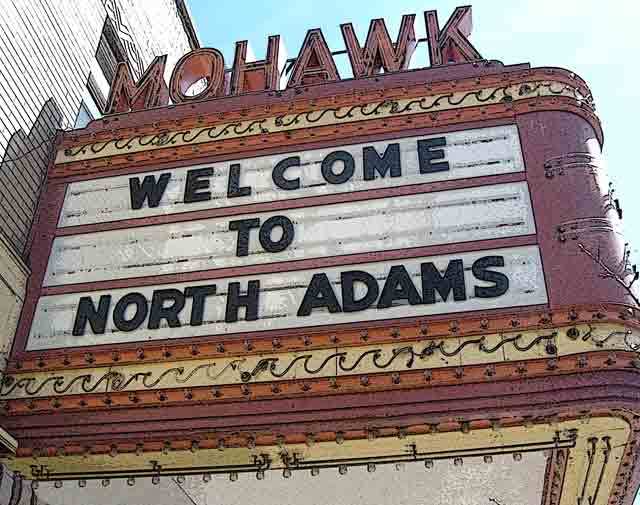| Home | About | Archives | RSS Feed |

North Adams Prepping For Budget Season

 NORTH ADAMS, Mass. — The Finance Committee is wondering how the city might learn from the state's takeover of other municipalities.
NORTH ADAMS, Mass. — The Finance Committee is wondering how the city might learn from the state's takeover of other municipalities.
The city is struggling with rising costs and nearly depleted reserves. Yet Lawrence, which accepted state oversight to borrow $24 million, has a robust $5.9 million in cash overlay; Springfield, which just exited receivership, has $109 million — some 19 percent of its budget.
In comparison, North Adams has a cash overlay of $726,000; about .0014 percent its budget, said Mayor Richard Alcombright.
"Obviously, Springfield benefited from receivership and Lawrence is plugging along," said committee member Alan Marden. "What can we learn from what was done there?"
The mayor said he hoped to discuss that with the Department of Revenue, but the city may already be following that lead.
"If this group and the council and the staff hadn't worked to be so pro active last year ... we might have gone that way," said Alcombright. "I think it was the fact we kept addressing things."
Still, the city has some tough times ahead and is facing a structural deficit of $1.2 million that could jump to $1.4 million to $1.6 million, depending on the state budget.
The mayor is urging the Finance Committee and staff to undertake discussions now to be prepared for cost-cutting measures and some out-of-the-box thinking to get through the next year.
One of the topics that has come up is regionalization of services, a la the city's recent partnership with Adams and Williamstown to share a veterans agent. Committee member David Bond wants to go further, suggesting that Adams and North Adams reintegrate once again to create a more streamlined system and save money.
"Those discussions sometimes take months, sometimes take years, but let's start talking about this stuff," Alcombright said.
In comparison with other municipalities, the city is lagging. It ranks last in the state in equalized property valuation (total value divided by number of residents) and last in the state for single-family home valuation (at $135,000), according to the DOR.
Its average residential tax bill ($14/$1,000) is the third-lowest in the county, but it's commercial rate appears to be the highest ($31.49).
Pittsfield, for example, has a residential rate of $14.20 and an average home assessment of $190,000, and a commercial rate of $29.41. Committee Chairman Michael Bloom, however, pointed out at the lower valuations in North Adams means a business owner would be paying much less even with the higher rate.
Alcombright said city has the seventh-lowest per capita income in the state ($16,381); and 18 percent of residents live below the poverty line, compared to 11 percent in Pittsfield and 9 percent statewide.
"What hurts us, what holds us back is a true sustainable, growing ecomony that doesn't churn a housing market or commercial property market," said the mayor, who added that that the city had to keep in mind the economic struggles of its citizens as it moves forward.
(On Monday morning, the city announced a partnership to try to spark private investment.)
In looking over the fiscal 2011 budget at the halfway mark, the city is about on track with about a third of expected revenue received and at the 49 percent mark in expenditures.
The landfill account is lighter than normal. The mayor said Public Services Commissioner Timothy Lescarbeau reported the number of trips, or loads, to the transfer station have not dipped but the weight of loads has. "People seem to be throwing less away," Lescarbeau had told him. The mayor added, "I would be more concerned if the trips were down because then you know the drivers are maybe going off to Pittsfield."
City officials had been concerned with the first-quarter returns on the meals tax, which came in at barely over $12,000. That could have been indicative of what the restaurants had actually paid to date, said the mayor, rather than what was owed.
Business Manager Nancy Ziter said the meals tax for the second quarter brought in $36,600, pegging it as more than $49,000 for the year to date. The rooms tax for the second quarter brought in $70,000, bringing the total so far to $151,000.
The mayor also discussed some of the finding in the audit done by Scanlon & Associates. Among the report's suggestion was the implementation of a full order and requisition system; tracking accounts receivable for veterans' disbursements (which are reimbursed 75 percent in the next year); write off languishing excise taxes while maintaining a mechanism for repayment; accounting for postretirments costs; developing a policies and procedures manual; establish internal audit system; and risk-assessment monitoring (related to cash receipts such as the landfill).
"There's nothing in here that any of us saw as a big deal," said the mayor. "It was more procedural, tidying up, cleaning up."
The auditors will give a presentation to the Finance Committee in the coming weeks.
Councilors President Ronald Boucher, Lisa Blackmer and Marie Harpin were aso in attendance.
| Tags: regionalization |

